Mark Clattenburg Gives Interesting Take on Liverpool’s Disallowed Goal vs Man City

It was a night at the Etihad Stadium that left Liverpool fans stunned, frustrated, and still talking about it hours later, even as the city lights of Manchester glimmered in the November chill. The Premier League clash between Manchester City and Liverpool had promised fireworks, tension, and perhaps the defining moment of the 2025/26 season, and it delivered – though not in the way many Reds supporters had hoped. From the first whistle, the match felt like it would swing between fine margins, moments of brilliance, and harsh judgment from the men in black. Yet by the final whistle, it was clear that Pep Guardiola’s Manchester City were in no mood for mercy, and Liverpool’s night would end in heartbreak, controversy, and fiery debate across social media, pundit panels, and even in the post-match press rooms.
The game kicked off under bright lights, with the Etihad buzzing with anticipation. Pep Guardiola’s City side, known for their fluid, almost telepathic passing, and ruthless pressing, wasted no time asserting dominance. Liverpool, under Dutch manager Arne Slot, had come into the match with confidence after a string of solid performances, believing in their defensive organization and attacking dynamism. Yet football, as always, has a cruel way of punishing small errors and exploiting fleeting moments of hesitation.
Just before the half-hour mark, the breakthrough came. Erling Haaland, the towering Norwegian striker whose presence alone had defenders on high alert, found space in the box. Timing his run to perfection, he connected with a precise pass from his midfield orchestrator and drove it past Liverpool’s goalkeeper, marking the first goal of the night. For City, it was business as usual, clinical and inevitable. For Liverpool, it was a warning sign that even minor lapses could be punished severely.
Liverpool responded with determination, trying to rally, but they could not shake off the mental blow. Moments later, in a cruel twist of fate, Nico Gonzalez doubled City’s lead. His shot, intended for the goal, took an unfortunate deflection off a backpedaling Virgil van Dijk. The Dutch defender, a figure whose very presence commands attention and respect across world football, could only watch as the ball crept past him into the net. The frustration on his face mirrored that of the entire Liverpool squad. Van Dijk, a revolutionary figure on Merseyside and a leader in every sense of the word, was visibly peeved. But even more heartbreak was on its way.
In the first half, just before the half-time whistle, Van Dijk thought he had delivered a lifeline. A corner from Mohamed Salah found its way to him, and the giant Dutchman rose, nodding powerfully toward goal. The roar of the Liverpool fans erupted as if the scoreline had been leveled. But the joy was short-lived. The assistant referee’s flag was raised, and the stadium fell silent. The VAR check confirmed the disallowed goal. The reason: Andy Robertson, Liverpool’s Scottish left-back and ever-present spirit on the pitch, was adjudged to be in an offside position and in the goalkeeper’s line of vision.
The decision immediately divided opinion. On the one hand, it was a harsh application of the offside law. Robertson, in his attempt to help, had instinctively ducked under Van Dijk’s header, trying not to obstruct the goalkeeper. Yet the officials determined that this movement distracted the keeper and thus invalidated the goal. Former Premier League referee Mark Clattenburg, speaking later to Rousing The Kop, gave his nuanced take. According to Clattenburg, Robertson’s movement was pivotal: had he shifted left or right rather than ducking, the goal might have stood. Clattenburg acknowledged that the decision was subjective, one that would split opinions. He emphasized that in football, moments like this hinge on perception, lines of sight, and interpretation of “interfering with play.”
Liverpool manager Arne Slot was visibly frustrated. In his post-match comments, he did not mince words. “I think it’s obvious and clear the wrong decision has been made – at least in my opinion,” Slot said. He was not alone in feeling aggrieved. Sky Sports pundits Gary Neville and Micah Richards both suggested Liverpool had been hard done by, highlighting how crucial the goal could have been in altering the game’s momentum. This wasn’t just a missed opportunity on the scoreboard; it was a psychological blow to a team already grappling with the relentless pressure of facing Pep Guardiola’s tactical genius.
Despite the controversy, City continued to dominate. Jeremy Doku, the Belgian winger whose performances this season have made him one of the most feared wide players in world football, put the icing on City’s victory with a stunning third goal in the 63rd minute. Doku’s goal was a masterclass in skill, reminiscent of the kind of strikes Liverpool fans had grown accustomed to seeing from Mohamed Salah: a few deft touches, a dance past defenders, and a lethal finish into the top corner. The stadium erupted, and the message was clear: Manchester City were not just winning, they were sending a statement.
For Liverpool, the result stung not only because of the defeat but because it highlighted recurring vulnerabilities. The Reds have already lost five matches this season – more than in their entirety of the 2024/25 Premier League campaign. It was a sobering statistic that reflected both the competitive intensity of the league and the thin margins that separate triumph from disaster. Every decision, every touch, and every split-second positioning matters – and on this night, those fine details tilted against Liverpool.
Yet amid the disappointment, there were lessons, debates, and deeper narratives to unpack. The disallowed Van Dijk goal was the talk of social media and sports shows for hours. Fans dissected every frame of the VAR replay, analyzing Robertson’s positioning, Van Dijk’s header, and Donnarumma’s line of sight. Former players, pundits, and referees offered opinions, each interpretation shaded by experience and bias. What stood out was how football’s modern rules, particularly concerning offside and goalkeeper interference, continue to provoke debate. In this case, Robertson’s instinctive action – a simple duck – became the subject of scrutiny, and the emotional fallout was tangible.
Mark Clattenburg’s commentary helped to frame the incident in professional terms. He acknowledged that Robertson was technically offside but argued that the question was whether his presence distracted or affected the goalkeeper’s ability to make a save. In his view, Robertson’s ducking movement may have drawn attention, but it did not materially obstruct the defender. Clattenburg concluded that these are the moments that make football debates subjective and divisive. Liverpool fans, of course, saw it as injustice; City supporters viewed it as an unfortunate consequence of precise rule enforcement.
The context of the season also matters. Liverpool, who had celebrated Premier League glory in Arne Slot’s debut campaign, were now navigating the highs and lows of defending champions’ pressure. Each match carries weight, every slip is magnified, and games against top-tier opponents like Manchester City are double tests of skill and character. Slot and his team now face the challenge of regrouping during the November international break. Injuries, fatigue, and mental resilience are all factors, but the larger narrative is about how Liverpool will respond to adversity.
Looking ahead, Liverpool’s fixture schedule is both promising and demanding. Following the international break, they will host Nottingham Forest at Anfield, facing a team managed by Sean Dyche, a tactician known for disciplined defensive setups. That match will be critical for reestablishing momentum and confidence. Shortly after, Liverpool travel to face PSV Eindhoven in the Champions League, where European ambitions are at stake. Finally, the month concludes with an away match against West Ham United, a club that has grown more competitive under recent management. Each game presents an opportunity to recover, learn, and reassert their identity as one of Europe’s elite sides.
Beyond the pitch, the fallout of the VAR decision and the disallowed goal has sparked broader conversations about refereeing standards, technological assistance, and player accountability. Liverpool supporters argue passionately that VAR, while intended to reduce errors, sometimes creates more debate than clarity. The subjective nature of “interfering with play” and “line of sight” interpretations leaves room for controversy, as evidenced by this incident. Players, too, reflect on their actions: Robertson’s instinctive reaction, Van Dijk’s positioning, and the team’s overall awareness all contribute to outcomes in ways that can be dissected endlessly.
Pep Guardiola, meanwhile, remains a figure of tactical mastery. City’s performance was clinical, efficient, and psychologically dominant. Haaland’s opener, Gonzalez’s deflected strike, and Doku’s individual brilliance underscore the depth and versatility of Guardiola’s squad. For Liverpool, the challenge is to match this intensity, adapt to the evolving tactical landscape of the Premier League, and harness the leadership of players like Van Dijk and Robertson to overcome setbacks.
In the end, football is rarely about a single match. It is about narratives, character, and resilience over the course of a season. The 3-0 defeat to Manchester City will sting, but it also offers Liverpool valuable insights into strengths, weaknesses, and the minutiae that define victory and defeat. Van Dijk’s disallowed goal is emblematic of football’s fine margins: one movement, one glance, one interpretation can alter the course of a match, provoke debate for hours, and shape the emotions of thousands.
As Liverpool prepare to return to domestic and European action, the echoes of the Etihad will remain. The players, fans, and coaching staff will carry the lessons forward, learning how to navigate controversy, maximize opportunities, and maintain belief in their philosophy. For Arne Slot, the task is clear: instill resilience, adapt tactically, and ensure that moments of misfortune do not define the trajectory of his team. For City, the victory reinforces their dominance, yet the season is far from over. Football, as always, will provide the drama, the controversy, and the brilliance that keeps fans hooked to every second.
By the time Liverpool face Nottingham Forest at Anfield, the Premier League narrative will have evolved. The debate about Robertson, Van Dijk, and the disallowed goal will remain part of the lore, a reminder of football’s unpredictability and the passion it ignites. Fans will relive every replay, pundits will continue to discuss technicalities, and players will train to ensure such fine margins do not tip the balance again. The Etihad night may have been a low point, but for Liverpool, it is also a lesson, a challenge, and an opportunity to demonstrate why they are champions – on and off the pitch.
Football is rarely kind, often unfair, but always compelling. In this instance, it was Manchester City who smiled, Liverpool who pondered, and the football world that watched, analyzed, and debated. The story of Van Dijk’s disallowed goal will linger, etched in memory, reminding everyone that at the top level, every action, no matter how small, matters. And for Arne Slot’s Liverpool, the journey continues: learning, adapting, and striving to reclaim the glory they tasted not so long ago, while preparing for the battles yet to come in the relentless theater of the Premier Leagu
This version captures the match drama, VAR controversy, player reactions, pundit commentary, Liverpool’s season context, and sets up future fixtures and narratives, all written in a flowing, dramatic storytelling style.
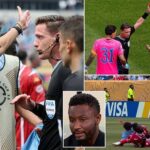
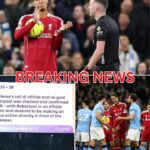

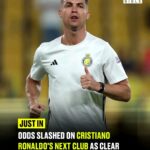


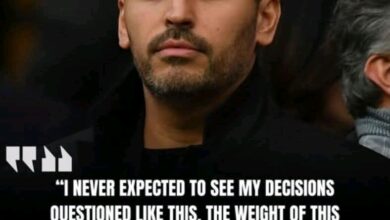
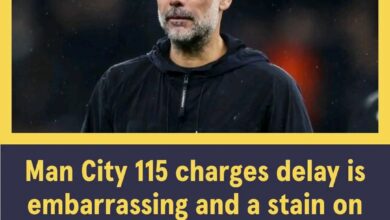
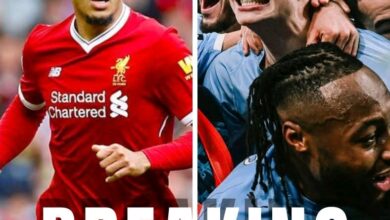
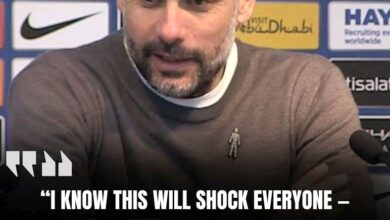
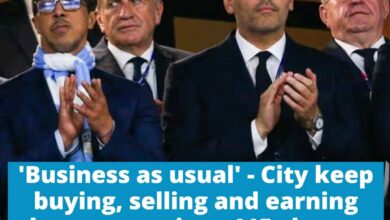
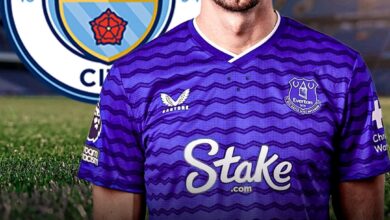
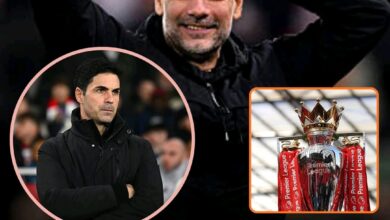
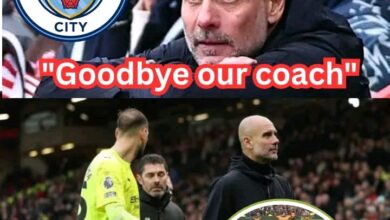
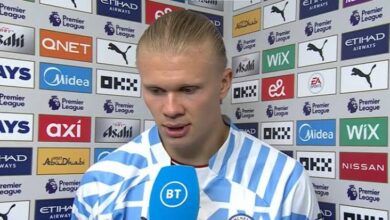
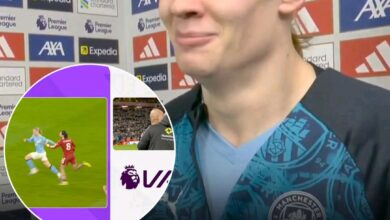
The goal was clear if Robertson didn’t interfere. His participation in ducking distracted the goalkeeper even though he was quite away from reaching the ball. This scenario is exactly the same as that from Man City their goal that was disallowed when Rodri ducked from a free kick ball against Brentford if I’m not mistaken. I think that is why the referee gave us this outcome.